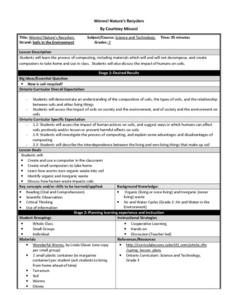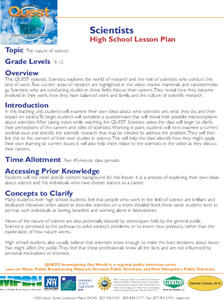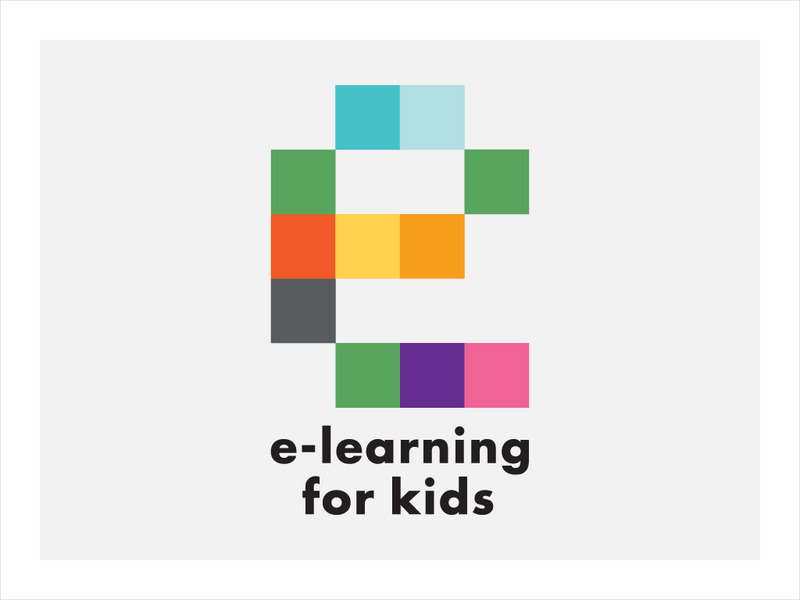Curated OER
Ecology
For use early in the year with your ecology class, this collection of slides introduces viewers to cycles in nature and relationships between organisms. There is a food web diagram, but the presentation is incomplete without any diagrams...
Curated OER
Worms, Nature's Recyclers!
Students study what worms need to survive in different environments. They study how worm composting improves soil and reduce waste. They discuss composting techniques and present a puppet show about a worm's life.
Curated OER
You Are What You Wear
Students, after analyzing interactions between groups/societies, effects of causality/change over time, forms of imaginative writing and utilizing art media to conveying messages/meaning, examine the relationship between clothing and...
Curated OER
Who's in my soil!?!...and just what do they think they're doing there?
Learners discover organisms that inhabit the soil, the beneficial an detrimental roles these organisms play, and the interactions between the organisms and their environment and other organisms. Students participate in four hands-on ...
Curated OER
Scientists
Young scholars explore the role scientists play in research. They research current important areas of scientific interest. They write about how this issue could affect them. They create posters about their chosen scientific issues.
Georgia Department of Education
Ga Virtual Learning: Ap Biology: Ecology
Students review the study of living things and make connections back to Earth's systems. This unit focuses on how various species, grouped in populations and communities, work with the nonliving things around them to ensure survival.
NC State University
North Carolina State University: Symbiotic Relationships
Includes a description of symbiosis in general, then lists and defines types of symbiosis including mutualism, commensalism, parasitism, competition, and neutralism. Includes a chart which summarizes the different types of relationships....
Other
Parenting Press: The Way I Feel Teaching Plan [Pdf]
"The Way I Feel" by Janan Cain helps children express their emotions. This link includes lessons on what to say and do. There are also resources to use to assist with the plans. Children learn to draw pictures to demonstrate how they feel.
Other
Stat Soft: Statistics Glossary
Dozens of statistical terms are defined and illustrated in this glossary.
PBS
Pbs: This Emotional Life: Attachment
PBS explores information on forming attachments including the types of attachments and the importance of each.
E-learning for Kids
E Learning for Kids: Science: Antilles: What Are the Environmental Factors of a Habitat?
Join Sam on his journey to the bottom of the sea. Explore beautiful animals living in the sea, and learn about the importance of a well-balanced habitat.











